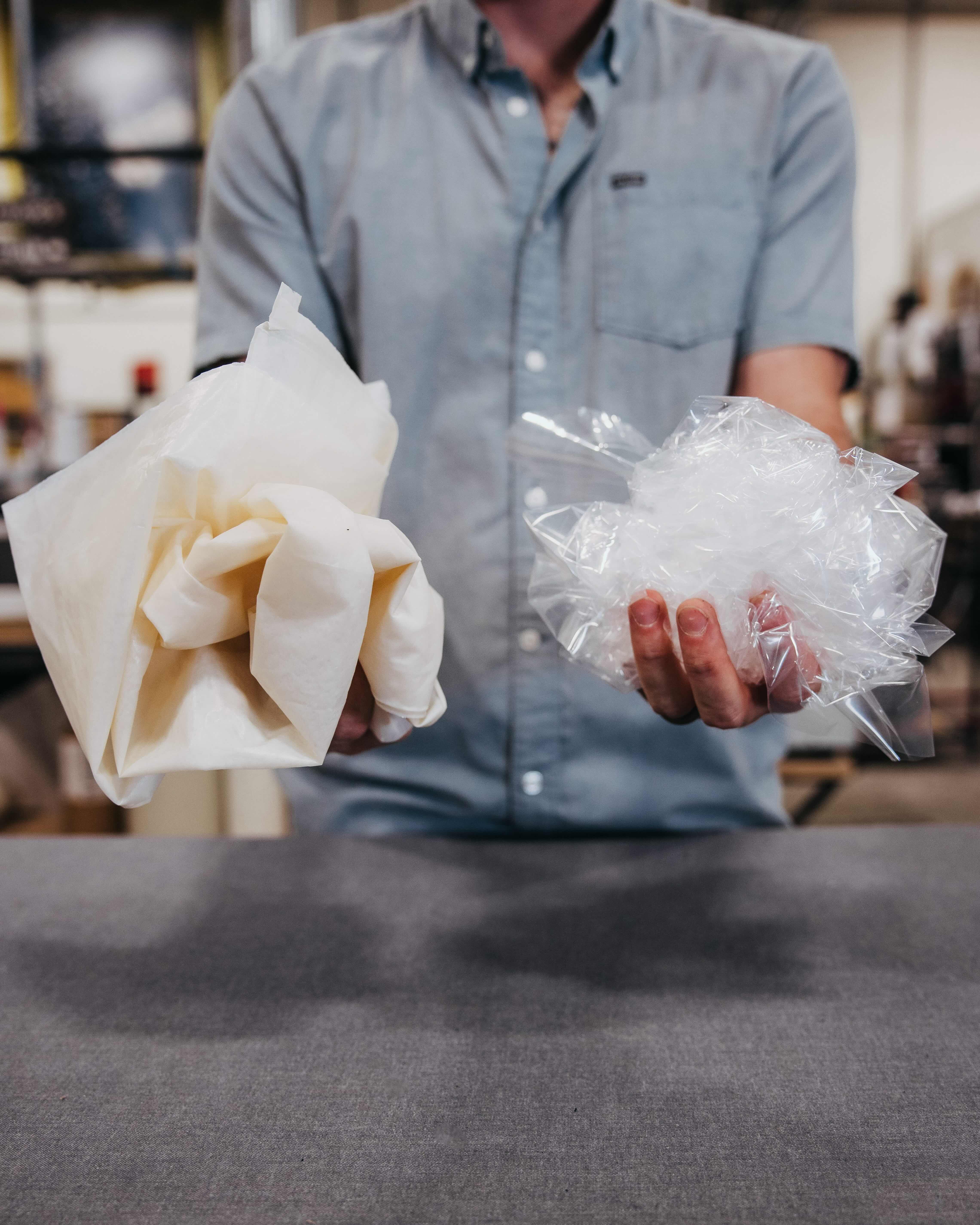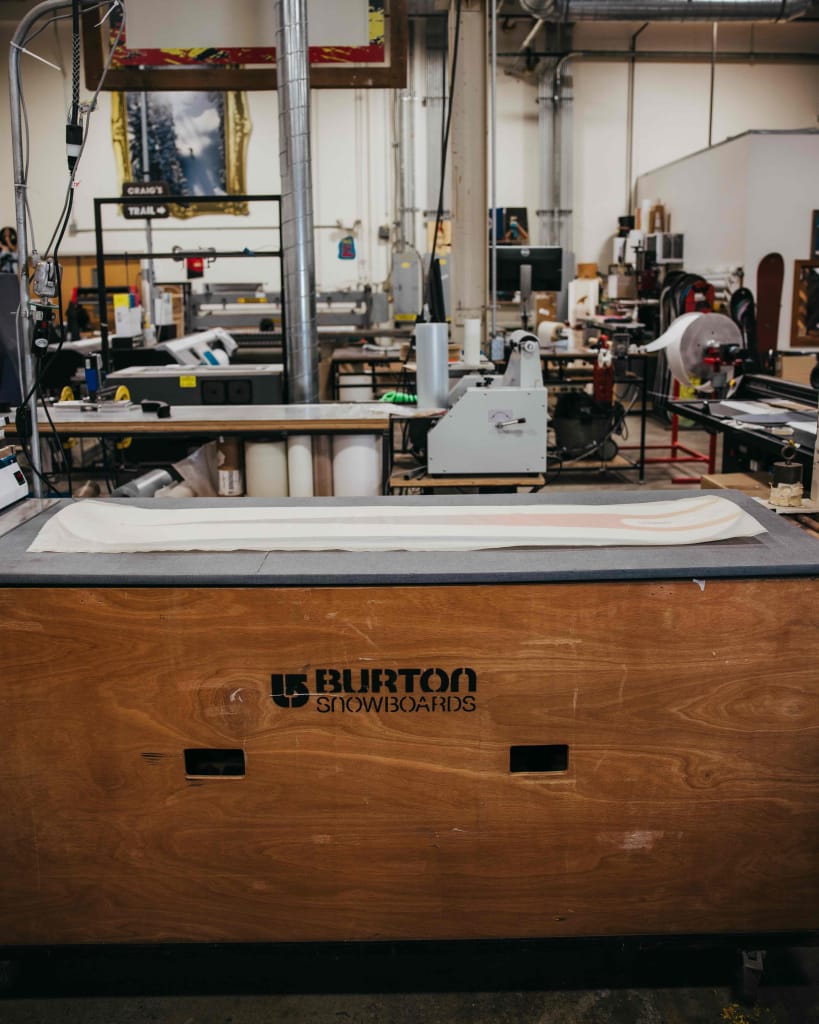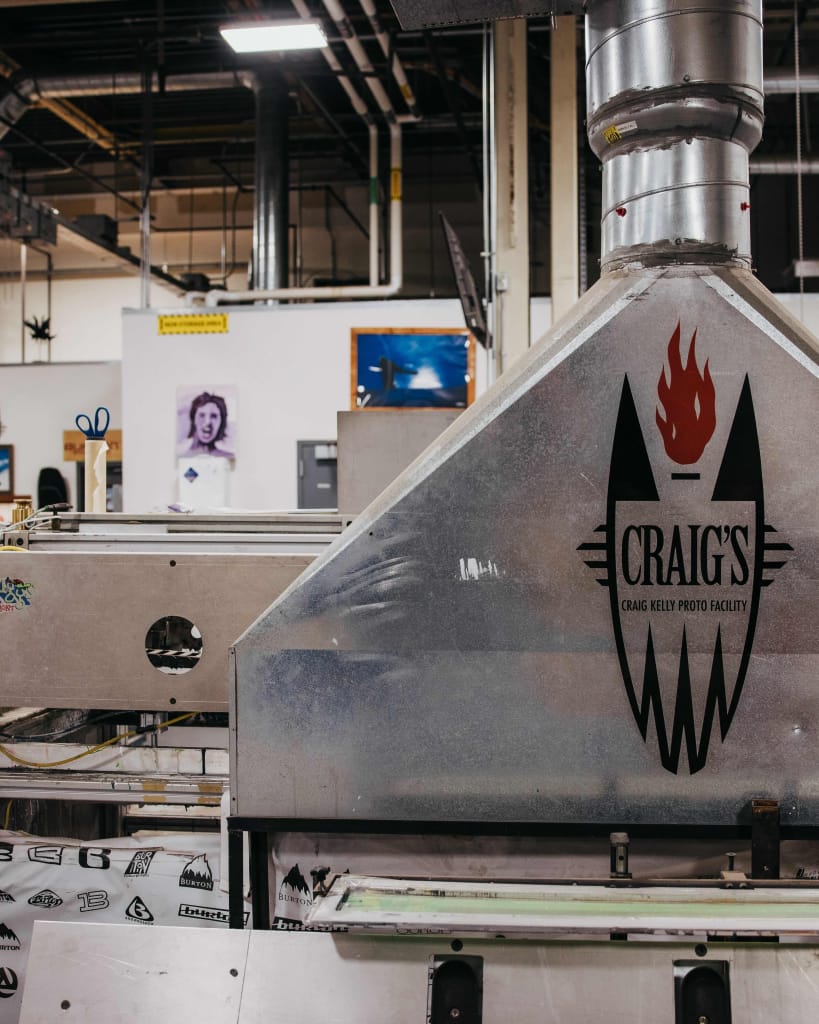This website is optimized
for a portrait
orientation. Be sweet
and turn your device.

Editor: Pauline Schöfbeck
Es ist ein bedeutender Schritt im Rahmen von Burtons Engagement, bis 2025 komplett plastikfreie und recycelbare oder kompostierbare Verpackungen einzuführen. Obwohl diese Lösung noch nicht marktreif ist, setzt Burton die Forschung fort und plant weitere Tests im kommenden Jahr. „Unser Ziel ist es, nicht nur unsere Produkte zu verbessern, sondern auch die gesamte Outdoor-Branche bei der Umstellung auf nachhaltige Materialien zu unterstützen“, sagt Mitch Rovito, Verpackungsmanager bei Burton. Wir haben mit ihm über innovative, seaweed-basierte Materialien gesprochen, die Dünnfilm-Einweg-Plastikverpackungen, gewonnen aus fossilen Brennstoffen, ersetzen sollen.
Why is plastic so important in the packaging industry and what distinguishes useful plastics from problematic ones?
Plastic serves a crucial role in protecting our products – ranging from food to medicine to snowboards – and ensures safe delivery to users worldwide (even astronauts rely on packaging for survival in space). However, it’s essential to differentiate between useful and problematic plastics. Problematic plastics are typically single-use and contribute to microplastics and pollution, which is a major environmental concern.
What are Burton’s main sustainability goals regarding packaging, especially in reducing problematic plastics?
We have ambitious goals for minimizing our contribution to problematic plastics. Specifically, we are working towards 100% single-use plastic-free retail packaging. Our aim is for all our packaging to be made from recycled materials and designed to be reusable, recyclable, or compostable. Achieving this will allow us to greatly reduce the impact of single-use plastics.
How does Burton collaborate with organizations to find eco-friendly packaging solutions?
For commercially available solutions, we have already activated the ones that make sense for Burton. For the remaining projects, there aren’t ready-to-go solutions. We’re working closely with material innovators and our supply chain to bring new solutions to life. Many of these ideas don’t make it out of the lab without collaboration. Therefore, we’ve partnered with Lonely Whale, a non-profit organization, committed to addressing this issue. They partnered with Tom Ford Beauty and The Estée Lauder Companies to launch a prize competition to call for solutions to thin film plastic packaging.


Can you tell us more about this project?
Certainly! The program was designed to help catalyze an enduring shift away from traditional thin-film plastic, which requires continued commitment from brands to scale prize winning solutions across industries and to encourage their peers to do the same. Entries from all over the world were submitted, reviewed by the world’s top scientists and advisors, and then finally 3 winners were announced: Sway, Zerocircle, and Notpla. Sway, an American company offering seaweed-based, home-compostable replacements for regenerative thin-film plastic packaging at scale; Zerocircle, an India-based company making wildlife and ocean-safe packaging materials from locally cultivated seaweed that dissolves; and Notpla, a London-based start-up on a mission to make plastic waste disappear by pioneering natural- membrane packaging, that uses seaweed as an alternative to single-use.
As part of the program, prize winners were paired with brands committed to partnering in R&D to pilot scaling these solutions to real-world applications. Burton joined this program to work with Sway and the supply chain to develop a proof of concept for replacing single-use thin film plastic wrap on snowboards with a seaweed-based and earth-digestible film alternative.
What does sustainability mean for Burton in terms of packaging and how is it integrated into your long-term strategy?
Packaging is an essential element of producing goods and delivering them to those looking to experience the mountains. The mountains are so precious to us here at Burton, and we know those receiving our goods feel the same. In order to protect our playground and source of inspiration, we need to stay committed to innovating and activating the most planet-forward systems in our packaging. For the packaging that doesn’t have a commercialized solution yet, we stay motivated towards progression, curious about what could be, and we are challenging “business as usual”. This work is so deeply connected with our goal of protecting our planet and sharing stories is one of the most powerful ways to spark inspiration. Sometimes, new ideas, like the sport of snowboarding, require us to think sideways in order to move in a new way.